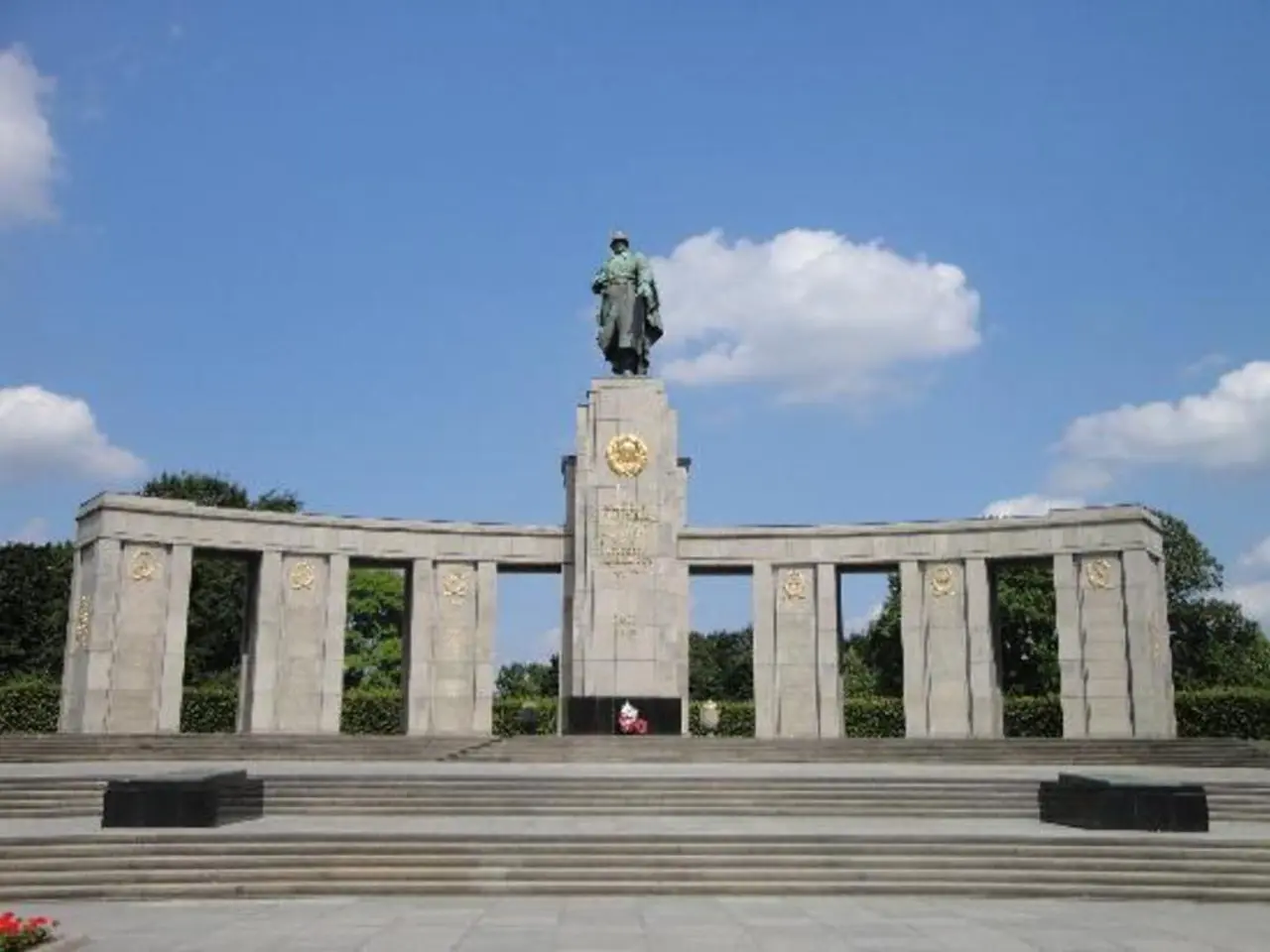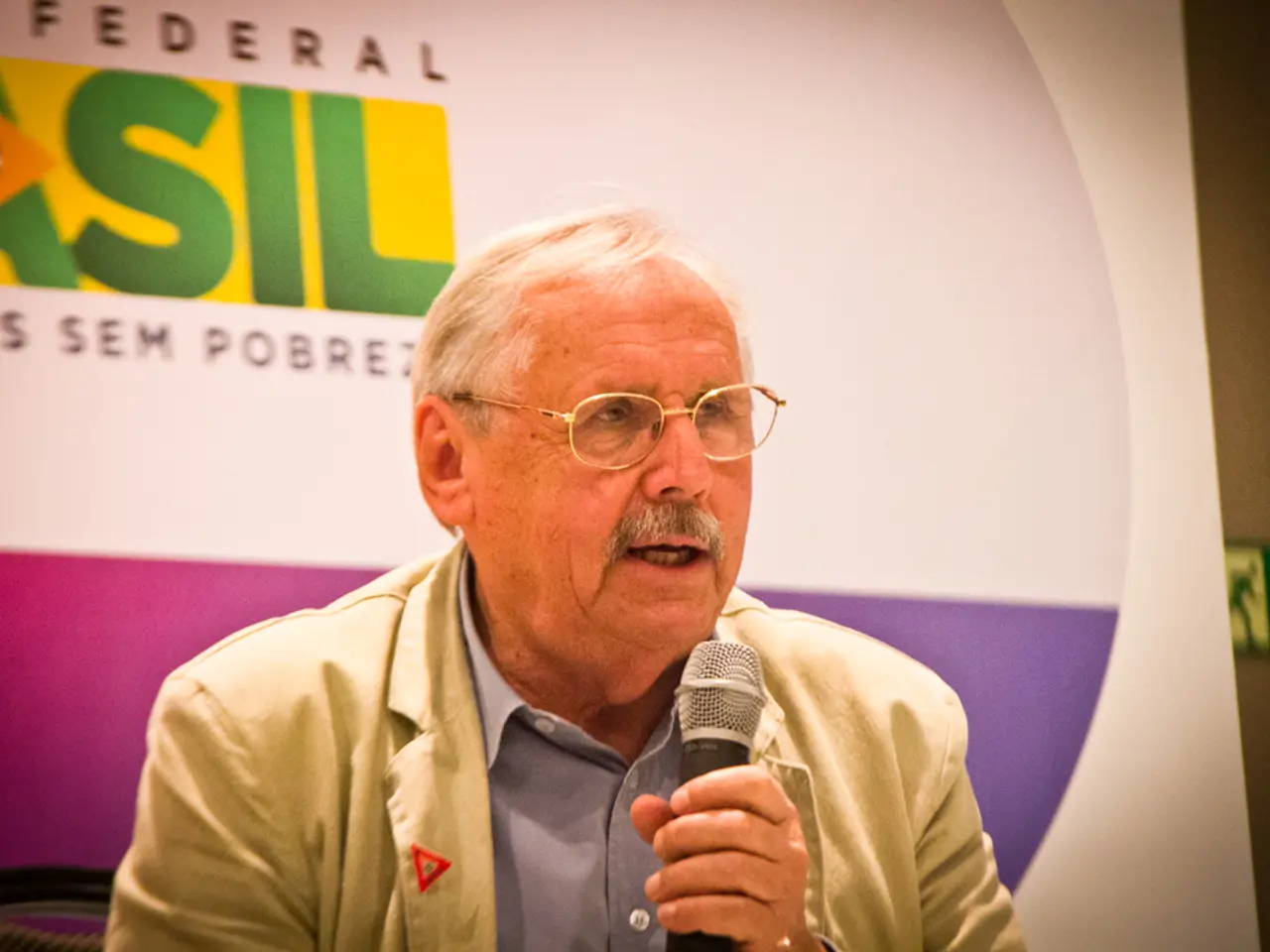Nineteen significant characters from the American Revolution, spanning royals and rebels.
In the tumultuous year of 1776, Thomas Jefferson penned the original draft of the Declaration of Independence, setting forth the colonies' reasons for seeking freedom from Britain and articulating the values that would underpin the new nation. Simultaneously, George Washington, a towering figure in the American Revolution, was appointed Commander-in-Chief of the Continental Army, leading a diverse group of colonial militias with resilience and determination.
As the war raged on, key figures such as Benjamin Franklin played a crucial diplomatic role, securing alliances that would prove essential for victory. Franklin's negotiations in France led to the 1778 Treaty of Alliance, formalizing French support for the colonists' cause, and he helped negotiate the 1783 Treaty of Paris, which marked the official end of the war.
Meanwhile, on the battlefield, military officers such as Nathanael Greene, Horatio Gates, Benedict Arnold, Philip Schuyler, and Daniel Morgan provided leadership that sustained the Continental Army's effectiveness during the conflict. One such officer, John Laurens, acted as George Washington's aide-de-camp from 1777 and was noted for his battlefield bravery.
In the face of adversity, ordinary citizens also played their part in the struggle for independence. Salem Poor, a Massachusetts militiaman, took part in several offensives and is believed to have helped fend off waves of British troops during the battle of Bunker Hill in 1775. Crispus Attucks, of African and Wampanoag heritage, is remembered as one of the first people to lose their lives in the Revolution, during the Boston Massacre.
Notable figures such as Samuel Adams and Patrick Henry fueled revolutionary fervor with their impassioned speeches, while John Adams delivered radical speeches advocating for American independence at the first and second Continental Congresses.
The Marquis de Lafayette, a French military officer who took up arms with the patriots, chased the British general Charles Cornwallis across Virginia, trapping him at Yorktown in 1781, effectively ending major combat. Washington steered the Continental Army through initial struggles to victory over the British in 1783.
In the years following the war, many of these key figures went on to hold positions of great power and influence in the newly formed United States. Washington became the first president of the United States, serving from 1789 to 1797. Thomas Jefferson served as America's president from 1801 to 1809 and bought the Louisiana Territory from the French in 1803. John Adams was elected America's second president in 1797, and later served as Washington's vice president for two terms.
Alexander Hamilton wrote the pro-Constitution Federalist Papers and was the United States' first secretary of the Treasury during Washington's administration. James Madison, known as the 'Father of the Constitution', helped draft the document and was later elected America's fourth president in 1809.
Thomas Paine, an influential writer and thinker, is best known for his work "Common Sense" which helped rally support for American independence. John Adams played a key role as a diplomat during the Revolutionary War, spending time in the Netherlands and Britain. Lafayette became a major general in the Continental Army and grew particularly close with George Washington.
In addition to these prominent figures, others such as Benjamin Franklin, Paul Revere, and Margaret Corbin made significant contributions to the cause of American independence, combining military leadership, diplomacy, and ideological vision to secure the colonies' freedom from Britain.
Politics, war-and-conflicts, and general-news intertwined during the American Revolution, as key figures like Benjamin Franklin played a crucial diplomatic role in securing alliances and negotiating treaties (politics). Meanwhile, military officers such as Nathanael Greene, Horatio Gates, Benedict Arnold, Philip Schuyler, and Daniel Morgan provided leadership on the battlefield (war-and-conflicts), while ordinary citizens like Salem Poor and Crispus Attucks also played significant roles in the struggle for independence (general-news).







